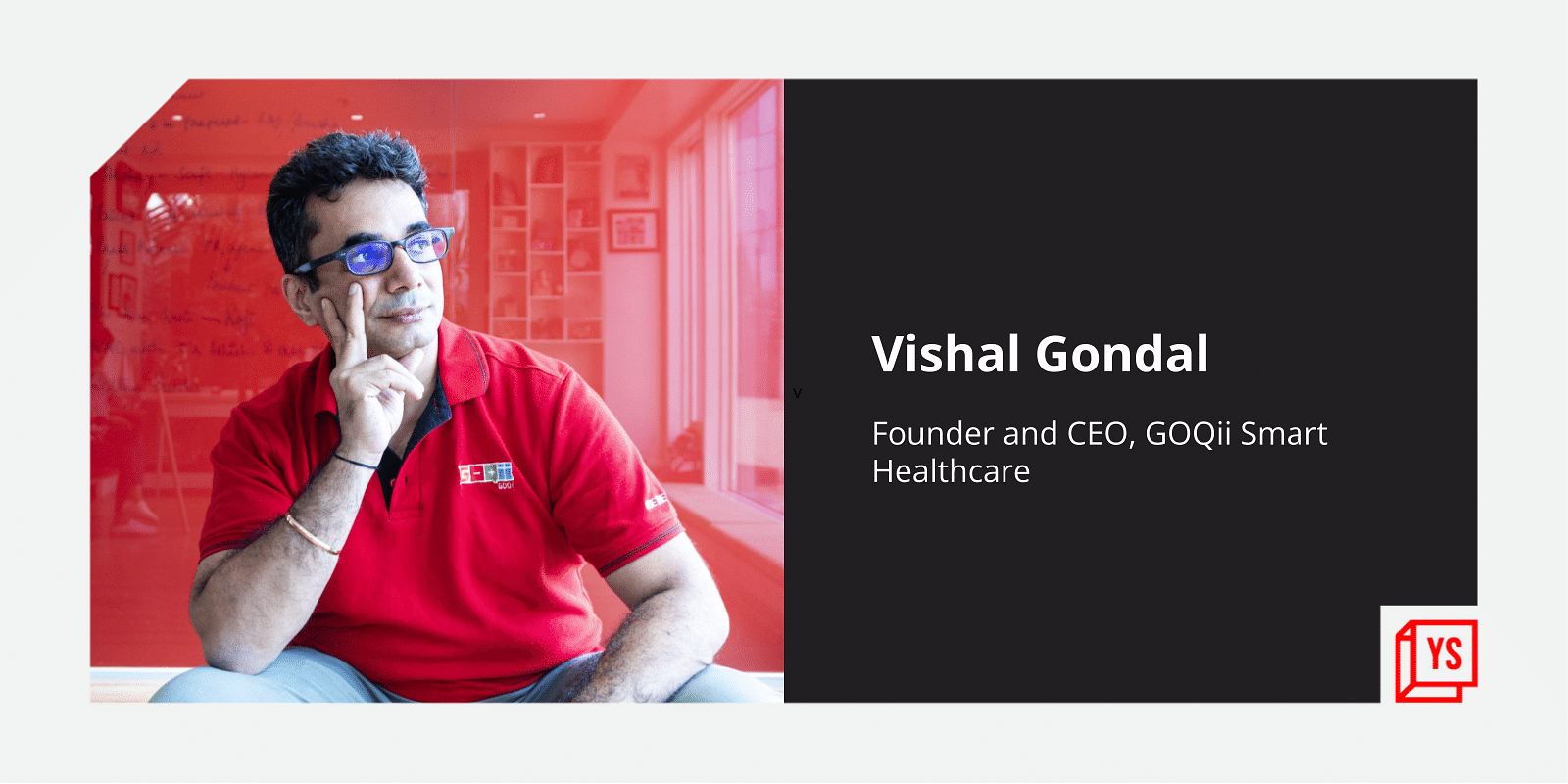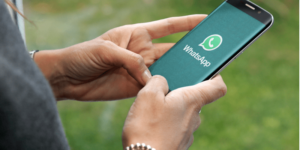According to IBEF, by 2022, the Indian healthcare market is expected to reach a market size of $133.44 billion.
In the last two years, amidst the COVID-19 pandemic, many of us started paying a lot more attention to our physical and mental wellbeing, keeping track of vitals such as oxygen level, heartbeat, blood pressure. An abnormal value in these levels is usually seen as a sign of disease.
And, This has been the case for GOQii — a California, US-headquartered healthtech wearable device startup.
GOQii offers more than just smart wearable devices. Since its inception in 2014, the company has come a long way from offering a smart fitness band to a preventive healthcare application.
“For us, wearables are a gateway to preventive healthcare,” Vishal Gondal, Founder and CEO, GOQii Smart Healthcare, tells YourStory.
With its wearable devices, GOQii’s users can engage with doctors, coaches, and experts to adopt a healthy and active lifestyle. According to Vishal, this helps the company retain its users.
“Our consumers are looking for these health services. Our average user is more than 35 years. And, they’re the ones who are engaging with us for a much longer time,” Vishal says
GOQii’s integrated system allows users to share their information, including vitals such as heart rate, ECG, temperature, SPO2 levels, etc., with their coaches and doctors, who guide them based on it.
For example, one of the early indicators of any illness is atypical levels of resting heart rate. Coaches and doctors take note of such data points before recommending treatments or diets.
Gamification on app
Vishal — who previously founded game development and publishing company Indiagames — has added a gamification layer to the GOQii app. Here, users, now players, can get a score for performing certain activities to promote movement and a healthy lifestyle during the day.
Vishal says, “In computer gaming, one of the things you learn is you need to reward people for everything.”
This score helps players earn GOQii cash — a virtual currency — which they can use to get discounts on GOQii’s ecommerce marketplace.
“We want everybody to be a player in the app. Because the idea is that you’re playing the game of life, and you’re all having different challenges And, everybody needs to become better by improving one percent every day,” says Vishal.
In fact, through a community, users can post updates about their health, food, and lifestyle, and see how others are performing, thereby encouraging them to engage more and spend more time on the app.
“We incentivise what people engage more in,” Vishal says, talking about the features of the community.
Preventive healthcare
In 2015, GOQii launched remote healthcare, and in 2018, it started offering virtual videos for fitness training. Vishal says COVID-19 only accelerated the process.
GOQii only has paid customers using its app, prioritising user engagement. The fitness company has one million paid users, of which about 600,000 are active monthly users. A user pays anywhere between Rs 2500 and Rs 6000 per year, depending on their plan.
It has a network of about 1200-1500 coaches and 100 doctors on the app.
“One of the things we do is we focus on consumer experience. The app has a Net Promoter Score, a metric that helps track user experience,” Vishal says.
As it goes deeper into preventive healthcare, GOQii has been able to get a lot of data and insights from its users. In fact, it has partnered with Abbott Laboratories and Sun Pharmaceuticals to collect medical information.
“We only integrate these data only after the explicit permission of our partners and customers due to the sensitive nature of the data,” Vishal says.
While the ecosystem is already integrated and helps doctors and coaches with insights, the company has found more use for this in the insurance business, for which it has partnered with companies like Bajaj Allianz General Insurance and Star Health Insurance.
Talking about investing in getting certifications for its devices, Vishal says, “One of the challenges in the wearable business is reliability, which is why GOQii invested a lot in compliance reports, multiple ISO certifications.”
He added the company got registered as a medical device company, backed by clinical trials.
In August 2021, GOQii had told YourStory that it is planning to hit a $100 million revenue mark in the next 18-24 months. The startup competes with wearable brands like Fitbit and healthtech startups, including dacadoo GO, HealthifyMe, etc.


![Read more about the article [Weekly funding roundup Dec 9-15] VC funding touches fourth highest level for 2023](https://blog.digitalsevaa.com/wp-content/uploads/2023/09/funding-roundup-LEAD-1667575602969-300x150.png)



![Read more about the article [Funding alert] Public App by Inshorts raises Rs 300 Cr led by A91 Partners](https://blog.digitalsevaa.com/wp-content/uploads/2021/03/Eajz3g3UMAAI0aX-1608619243276-300x150.jpg)



